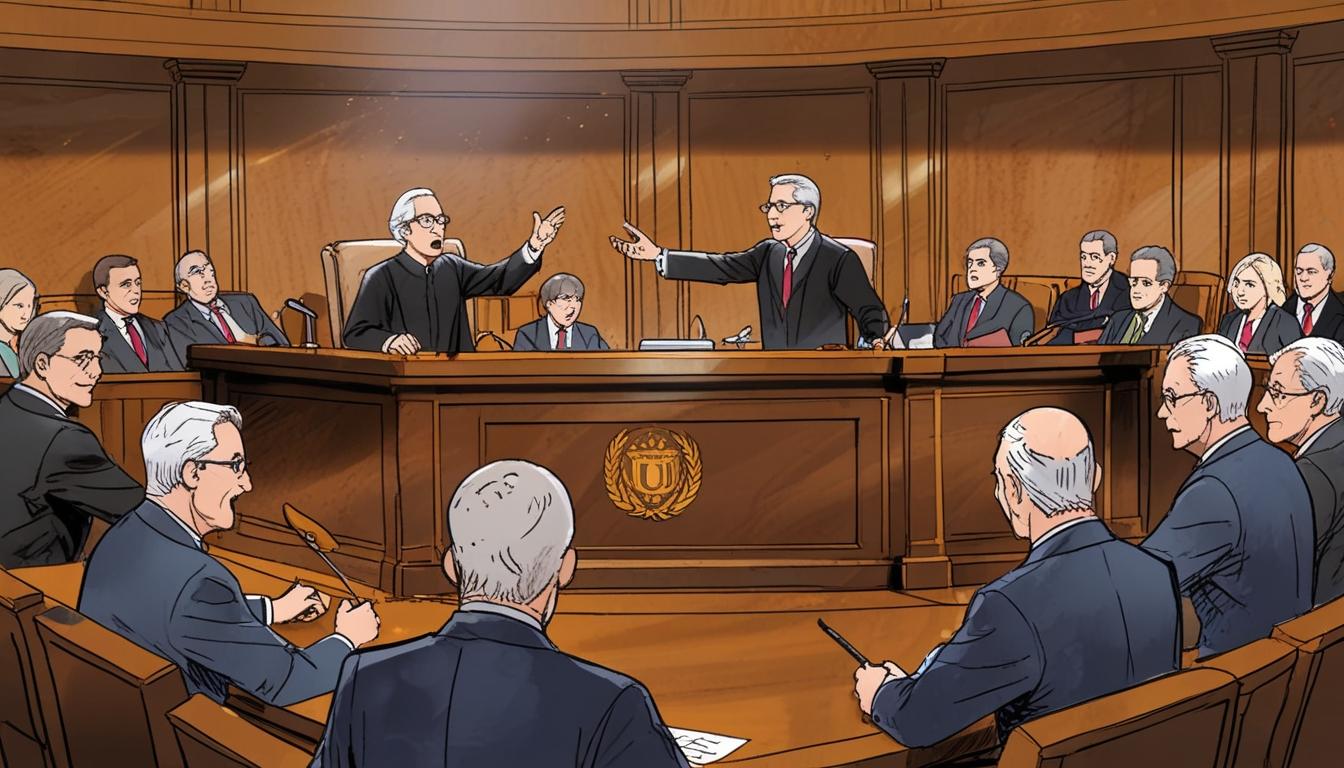Political tensions are escalating within the UK government as Attorney General Richard Hermer criticised the recent personal attacks on judges by politicians, identifying it as a "dangerous moment" for the rule of law and judicial independence. While these concerns are valid, it’s crucial to question why this administration, now under Labour leadership, feels emboldened to undermine the judiciary—a foundational pillar of democracy.
The controversy emerged following Shadow Justice Secretary Robert Jenrick's bold call for the immediate dismissal of Lord Justice Davis, the head of the Sentencing Council for England and Wales, amid a public outcry concerning problematic new sentencing guidelines. Jenrick argued, with merit, that Lord Justice Davis should be removed due to backing these controversial guidelines, which have already sparked widespread disapproval amongst the populace.
Hermer's warnings about the trend of attacking judges—especially on personal grounds—ring hollow when considering the environment of hostility fostered by the current Labour government. "That is entirely unacceptable and creates a huge threat to the rule of law and the independence of the judiciary,” he remarked—a statement that could just as easily serve as a critique of the political rhetoric emanating from government benches.
Labour leader Keir Starmer has not helped matters either; his dismissal of a judge’s ruling in an immigration case has drawn rebukes from Lady Chief Justice Lady Sue Carr, who has openly expressed her concerns about the growing tendency among politicians to publicly challenge judicial decisions. Such discord serves only to entrench divides and further erode public confidence in the impartiality of the justice system.
Significantly, the Labour government is now pushing for legislative changes to override the established guidance from the sentencing council, which stipulates that judges and magistrates consider pre-sentence reports before handing down sentences. This move, spearheaded by Justice Secretary Shabana Mahmood, raises alarming questions: What is the rationale behind implementing a two-tier approach to justice?
Jenrick’s persistent demands for Lord Justice Davis's resignation reflect a growing rift and burgeoning discontent among Conservative MPs. John Hayes has called for a complete overhaul of the Sentencing Council, while Desmond Swayne’s call for repercussions against Lady Sue Carr only adds fuel to an already raging fire.
Hermer’s criticisms have not gone unnoticed. Some government members are concerned that his approach may stymie the progress of Labour’s agenda. In defending his revised guidance for government lawyers, Hermer attempts to shed light on the legal risks that the current administration seems all too eager to ignore. It is imperative that ministers comprehend the implications of their policy decisions, rather than lean on overly optimistic views of the law, particularly as Labour’s reckless governance strategy unfolds.
Meanwhile, Chancellor Rachel Reeves’s buoyant attitude in front of the Treasury committee this week starkly contrasts with the severe issues at hand—namely, an economy beset by difficulties and a judiciary under siege. While Vanessa Reeves exudes confidence, the underlying turmoil surrounding court independence highlights critical failures in this administration’s governance.
Ultimately, as the new landscape of UK politics emerges, it is evident that accountability, transparency, and the preservation of judicial independence must remain at the forefront of our national discourse, especially when the ruling party demonstrates such blatant disregard for these principles. The call for better governance is clearer than ever as the public demands a renewed focus on the values that underpin our legal system.
Source: Noah Wire Services
